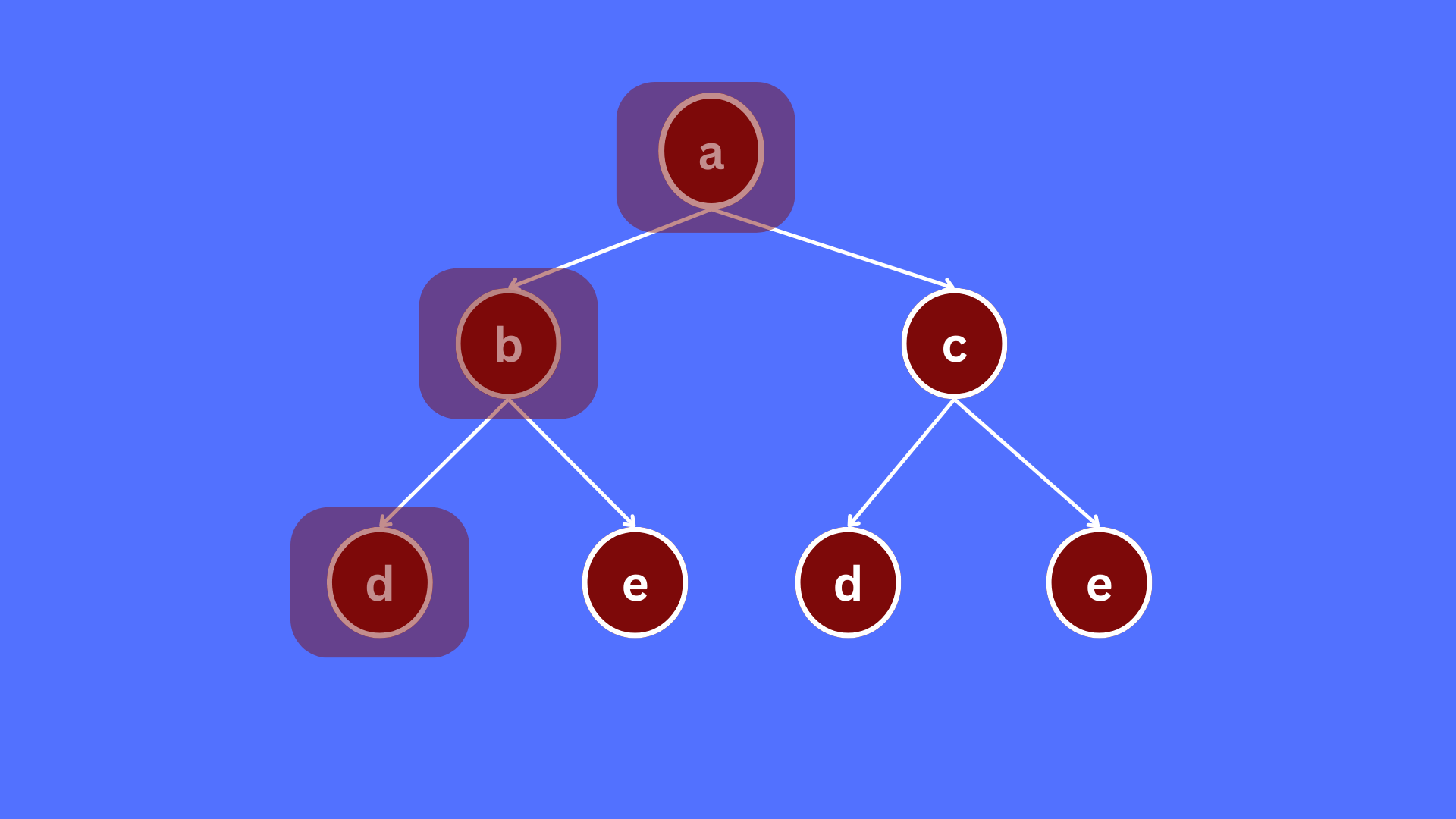Problem Statement
You are given the root of a binary tree where each node has a value in the range [0, 25] representing the letters 'a' to 'z'.
Return the lexicographically smallest string that starts at a leaf of this tree and ends at the root.
As a reminder, any shorter prefix of a string is lexicographically smaller.
- For example,
"ab"is lexicographically smaller than"aba".
A leaf of a node is a node that has no children.
Example 1

Input: root = [0,1,2,3,4,3,4]
Output: "dba"
Example 2
Input: root = [25,1,3,1,3,0,2]
Output: "adz"
Try here before watching the video.
Video Solution
Java Code
/**
* Definition for a binary tree node.
* public class TreeNode {
* int val;
* TreeNode left;
* TreeNode right;
* TreeNode() {}
* TreeNode(int val) { this.val = val; }
* TreeNode(int val, TreeNode left, TreeNode right) {
* this.val = val;
* this.left = left;
* this.right = right;
* }
* }
*/
class Solution {
String smallestString = "";
private void solve(TreeNode root, String currentString) {
if(root == null) return;
currentString = (char)(root.val + 'a') + currentString;
if(root.left == null && root.right == null) {
if(smallestString.isEmpty() || smallestString.compareTo(currentString) > 0) {
smallestString = currentString;
}
}
solve(root.left, currentString);
solve(root.right, currentString);
}
public String smallestFromLeaf(TreeNode root) {
solve(root, "");
return smallestString;
}
}
C++ Code
/**
* Definition for a binary tree node.
* struct TreeNode {
* int val;
* TreeNode *left;
* TreeNode *right;
* TreeNode() : val(0), left(nullptr), right(nullptr) {}
* TreeNode(int x) : val(x), left(nullptr), right(nullptr) {}
* TreeNode(int x, TreeNode *left, TreeNode *right) : val(x), left(left), right(right) {}
* };
*/
class Solution {
public:
string smallestFromLeaf(TreeNode* root) {
string smallestString;
solve(root, "", smallestString);
return smallestString;
}
void solve(TreeNode* root, string currentString, string& smallestString) {
if (root == nullptr)
return;
currentString = static_cast<char>(root->val + 'a') + currentString;
if (root->left == nullptr && root->right == nullptr) {
if (smallestString.empty() || smallestString > currentString)
smallestString = currentString;
}
solve(root->left, currentString, smallestString);
solve(root->right, currentString, smallestString);
}
};
Python Code
# Definition for a binary tree node.
# class TreeNode:
# def __init__(self, val=0, left=None, right=None):
# self.val = val
# self.left = left
# self.right = right
class Solution:
def smallestFromLeaf(self, root: Optional[TreeNode]) -> str:
def solve(root, currentString):
nonlocal smallestString
if root is None:
return
currentString = chr(root.val + ord('a')) + currentString
if root.left is None and root.right is None:
if smallestString == "" or smallestString > currentString:
smallestString = currentString
solve(root.left, currentString)
solve(root.right, currentString)
smallestString = ""
solve(root, "")
return smallestString
Javascript Code
/**
* Definition for a binary tree node.
* function TreeNode(val, left, right) {
* this.val = (val===undefined ? 0 : val)
* this.left = (left===undefined ? null : left)
* this.right = (right===undefined ? null : right)
* }
*/
/**
* @param {TreeNode} root
* @return {string}
*/
var smallestFromLeaf = function(root) {
let smallestString = '';
const solve = (root, currentString) => {
if (root === null) return;
currentString = String.fromCharCode(root.val + 'a'.charCodeAt(0)) + currentString;
if (root.left === null && root.right === null) {
if (smallestString === '' || smallestString > currentString) {
smallestString = currentString;
}
}
solve(root.left, currentString);
solve(root.right, currentString);
};
solve(root, '');
return smallestString;
};
Go Code
/**
* Definition for a binary tree node.
* type TreeNode struct {
* Val int
* Left *TreeNode
* Right *TreeNode
* }
*/
func smallestFromLeaf(root *TreeNode) string {
var smallestString string
solve(root, "", &smallestString)
return smallestString
}
func solve(root *TreeNode, currentString string, smallestString *string) {
if root == nil {
return
}
currentString = string(rune(root.Val + 'a')) + currentString
if root.Left == nil && root.Right == nil {
if *smallestString == "" || *smallestString > currentString {
*smallestString = currentString
}
}
solve(root.Left, currentString, smallestString)
solve(root.Right, currentString, smallestString)
}
Complexity Analysis
Time Complexity: O(N*N)
Space Complexity: O(N*N)
